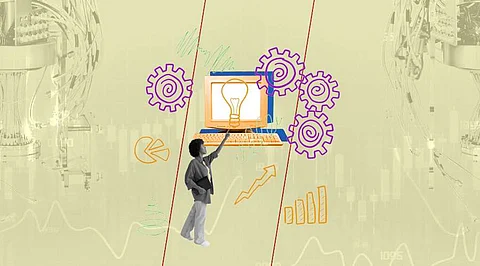

Several sectors, including drug research, cryptography, finance, and logistics, are already utilizing quantum computing, a ground-breaking technology. It operates by utilizing quantum mechanical processes to do complicated computations in a portion of the time needed by classical computers.
Quantum computers use quantum bits, or qubits, instead of conventional computers, which use binary bits (0 and 1). Superposition is a possible state for qubits. This implies that there is a chance for any qubit to be in both the 0 and 1 states simultaneously, exponentially enhancing the computing capability of quantum computers.
1. Quantum Supremacy: Despite the utility of the task, the goal of quantum supremacy is to show that a quantum computer can solve a problem that no classical computer can in an acceptable amount of time. The accomplishment of this objective indicates the superiority of a quantum computer over a classical computer in solving complicated problems.
2. Quantum Error Correction: The biggest issue with quantum computers is their susceptibility to errors brought on by unreliable controls and outside noise. This limits their usefulness because damaged data can occur when stored on a quantum computer. To reduce these flaws and guarantee error-free data storage on quantum computers, a technique known as quantum error correction (QEC) has been developed.
3. Fault-Tolerant Quantum Computing: The creation of practical quantum computers depends on detecting and eradicating defects. QEC handles errors in the quantum information stored, but what about errors that occur during operations? Is there a method to fix these mistakes and prevent the computations from becoming useless? Fault-tolerant quantum computing uses a combination of QECCs and fault-tolerant gates to ensure these errors are found and fixed.
4. Quantum Teleportation: Teleportation has been depicted much too frequently in science fiction films and television shows. But are any researchers on the verge of doing it? Yes and no. One can move a quantum state from one physical location to another using quantum teleportation without actually relocating the quantum state. It can be used for various things, including distributed quantum computing and secure quantum communication.
5. Topological Quantum Computing: The study of the characteristics of forms and spaces conserved when distorted is the subject of the mathematical field known as topology. But what connection does it have to quantum computing? Topological quantum computing provides a theoretical framework for manipulating and encoding qubits using quasiparticles known as anyons. The approach is based on the topological features of matter, specifically in the case of anyons, these particles' braided world lines.
Join our WhatsApp Channel to get the latest news, exclusives and videos on WhatsApp
_____________
Disclaimer: Analytics Insight does not provide financial advice or guidance. Also note that the cryptocurrencies mentioned/listed on the website could potentially be scams, i.e. designed to induce you to invest financial resources that may be lost forever and not be recoverable once investments are made. You are responsible for conducting your own research (DYOR) before making any investments. Read more here.
